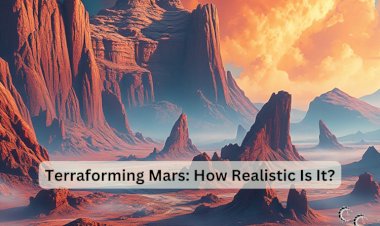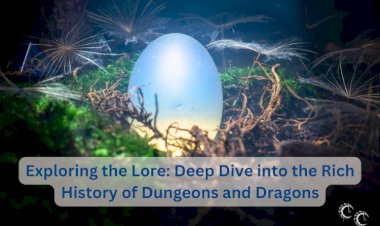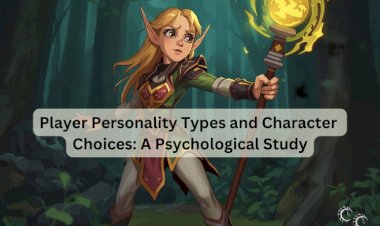The Fascinating World of Quantum Computing: Exploring Quantum Bits and Quantum Gates

Quantum computing represents a groundbreaking shift in the world of technology, promising to revolutionize fields ranging from cryptography to artificial intelligence. Unlike classical computers, which rely on binary bits (0s and 1s), quantum computers use quantum bits, or qubits, harnessing the principles of quantum mechanics to perform calculations. Central to their operation are quantum gates, the fundamental building blocks that enable quantum algorithms. Let’s explore these fascinating concepts in detail.
What Are Qubits?
Beyond Binary: Superposition
Qubits differ from classical bits because they can exist in a state of superposition. While classical bits are restricted to being either 0 or 1 at any given time, qubits can represent both states simultaneously. This unique property allows quantum computers to process an exponentially larger amount of data compared to classical systems.
For example, two classical bits can represent one of four possible combinations (00, 01, 10, 11). However, two qubits in superposition can represent all four combinations simultaneously. This enables quantum computers to perform parallel computations, vastly increasing their potential efficiency.
Entanglement: The Quantum Connection
Another key feature of qubits is entanglement. When qubits become entangled, the state of one qubit becomes dependent on the state of another, no matter the distance between them. This interdependence is a cornerstone of quantum computing, enabling highly coordinated operations across multiple qubits.
Physical Implementation of Qubits
Qubits are created using a variety of physical systems, such as:
- Superconducting circuits: Used by companies like IBM and Google.
- Trapped ions: Utilized by organizations like IonQ.
- Photons: Explored in optical quantum computing.
Quantum Gates: Manipulating Qubits
In classical computing, logic gates (AND, OR, NOT) manipulate bits to perform computations. Quantum gates play a similar role for qubits, but their operations are far more complex, relying on the mathematical principles of linear algebra and unitary transformations.
Basic Quantum Gates
- Pauli Gates (X, Y, Z): These gates perform rotations on the Bloch sphere, which is a visual representation of a qubit’s state. For instance, the X gate flips the state of a qubit, analogous to a classical NOT gate.
- Hadamard Gate (H): This gate places a qubit into a superposition state, equally weighting 0 and 1. It’s a foundational gate for many quantum algorithms.
- Phase Shift Gates (S, T): These gates alter the phase of a qubit, which is crucial for interference effects in quantum computing.
Entangling Gates
- CNOT Gate: The Controlled-NOT gate flips the state of a target qubit based on the state of a control qubit. This gate is fundamental for creating entanglement.
- SWAP Gate: This gate exchanges the states of two qubits, essential for routing qubits in quantum circuits.
Universal Quantum Gates
A set of quantum gates is considered universal if it can construct any quantum algorithm. The combination of the Hadamard gate, phase shift gates, and CNOT gate forms a universal set, making them indispensable tools for quantum computing.
Applications of Quantum Computing
The unique properties of qubits and quantum gates enable quantum computers to tackle problems that are intractable for classical computers. Some of the most promising applications include:
- Cryptography: Breaking classical encryption methods and developing quantum-safe algorithms.
- Optimization: Solving complex optimization problems in logistics, finance, and supply chain management.
- Drug Discovery: Simulating molecular interactions to accelerate drug development.
- Artificial Intelligence: Enhancing machine learning algorithms with quantum speedups.
Challenges in Quantum Computing
Despite its promise, quantum computing faces significant challenges:
- Decoherence: Qubits are extremely sensitive to their environment, and maintaining their quantum state for computation is difficult.
- Error Correction: Quantum systems require robust error correction methods to handle noise and maintain accuracy.
- Scalability: Building systems with a large number of stable, entangled qubits is a major technical hurdle.
The Road Ahead
Quantum computing is still in its early stages, but rapid advancements are being made. Companies like IBM, Google, and Microsoft are investing heavily in quantum research, while startups and academic institutions are exploring innovative approaches to qubit design and quantum algorithms.
As quantum computing continues to evolve, it holds the potential to redefine the limits of computation, transforming industries and unlocking new scientific discoveries. For now, the journey into the quantum realm is as exciting as it is challenging, and the possibilities are endless.
By understanding qubits and quantum gates, we take a step closer to grasping the incredible power of quantum computing and its implications for our future.






























